Why You Crave Sugar When You're Stressed and What to Do About It
Have you ever had a stressful afternoon and suddenly needed a cookie? Or my personal favorite, a Snickers bar? 😊
You’re not alone.
Let’s break down sugar cravings and talk about what’s really happening in your body, why stress triggers those cravings, and how you can work with your body.
What Stress Does to Your Body
When you’re stressed, your body activates the fight-or-flight response. That’s your sympathetic nervous system stepping in to keep you safe.
Whether the stress comes from an overflowing inbox, a tense conversation, or a missed deadline, your brain processes it like a threat. And your body responds in the same way it would if a tiger were chasing you.
Here’s what happens:
- Your brain signals your adrenal glands to release cortisol (the main stress hormone)
- Cortisol tells your liver to release glucose (sugar) into the bloodstream for quick energy
- Your blood pressure, heart rate, and alertness all rise
This is useful in actual emergencies. But most modern stress isn’t physical; it’s emotional or mental.
And instead of running from danger, you’re sitting at your desk… exhausted, irritable, and craving a muffin.
Why Cortisol Triggers Sugar Cravings
Cortisol does more than just ramp up your alertness. It also messes with your hunger and cravings.
Here’s how:
- Cortisol increases appetite, especially for high-sugar, high-fat foods
- It interferes with insulin, making it harder for your cells to use glucose effectively
- It slows down digestion, making you feel sluggish and bloated
- It causes blood sugar instability, leading to crashes that trigger even more cravings
So when you're in a state of chronic stress, your body becomes a sugar-seeking machine.
And it makes sense: sugar gives your brain a quick dopamine hit. It’s fast fuel and temporary relief.
But that relief doesn’t last.
The Stress-Sugar-Inflammation Cycle
This is where things get tricky.
Craving sugar during stress isn’t the issue. The cycle is.
Here’s how it works:
- You feel stressed → cortisol rises
- Cortisol raises blood sugar → then insulin rises
- Blood sugar crashes → you feel tired, anxious, and crave more sugar
- You eat sugar → short-term relief
- Inflammation increases → your body becomes more sensitive to stress
And the cycle repeats…
That last piece matters.
High sugar intake fuels inflammation, and inflammation makes your body more reactive to stress.
This creates a feedback loop that’s hard to escape unless you address the root cause.
What This Feels Like in Real Life
You may not notice this playing out on a chart, but you’ll feel it in your body:
- You start the day strong but crash mid-afternoon
- You feel “hangry” or irritable when you skip meals
- You find yourself stress-eating without really tasting your food
- You feel foggy, bloated, or tired after snacks
- You feel guilty for eating sweets but keep going back to them
Sound familiar?
Why Willpower Doesn’t Work
If you’ve ever told yourself “I’m not going to eat sugar today” only to reach for it by 2 PM you’re not lacking willpower.
The stress response isn’t something you can out-discipline. It’s hardwired. That’s why restrictive approaches often backfire.
What you need instead is to regulate your blood sugar and nervous system.
That starts with gentle, supportive steps that actually help your body feel safe and nourished.
What You Can Do Instead
Here’s the good news: you don’t need to overhaul your life to break the stress-sugar cycle.
You just need to give your body what it’s asking for, but in a better way.
1. Eat Balanced, Consistent Meals
Skipping meals or eating too little during the day is a recipe for late-day cravings.
Focus on:
- Protein (like eggs, chicken, lentils, or Greek yogurt)
- Healthy fats (like avocado, nuts, or olive oil)
- Fiber-rich carbs (like vegetables, beans, or whole grains)
This keeps your blood sugar stable and reduces cortisol spikes.
Even if you’re not hungry, try to eat something balanced every 4-5 hours.
2. Don’t Fear Carbs. Just Choose Wisely
Carbs aren’t the enemy. But highly processed carbs (like pastries and candy) spike your blood sugar quickly.
Swap them out for:
- Berries with almond butter
- A banana with sunflower seed butter
- Oats with chia seeds and cinnamon
- A sweet potato with tahini
These options offer steady fuel and contain nutrients that actually help lower inflammation.
3. Use Herbal Support
Instead of reaching for coffee or soda during stressful moments, try calming herbal teas.
Some of my favorites:
- Chamomile: supports the nervous system and digestion
- Rooibos: caffeine-free and full of antioxidants
- Peppermint: soothes your stomach and helps with focus
- Lemon balm: calms anxiety and supports mood
Sipping a warm cup of tea is an easy way to regulate your system without added sugar.
4. Regulate Your Nervous System
Stress isn’t just a mindset issue. It’s a physiological state.
To shift out of fight-or-flight mode:
- Take 5 deep belly breaths
- Go for a short walk outside
- Splash cold water on your face
- Lay down with your legs up the wall for 5 minutes
- Listen to calming music or white noise
You’ll be surprised how much these tiny shifts help reduce cravings by calming your system.
5. Get Curious Instead of Being Critical
Next time you crave sugar under stress, pause and ask:
- When did I last eat?
- Have I had protein today?
- Am I tired, bored, or overwhelmed?
- What would actually feel good right now?
Cravings give us insight into what's going on inside our bodies, so let's use them to improve our health instead of increasing inflammation!
Building awareness is the first step. Then, you start making small changes to adjust how you're reacting to stress.
You’ll start to notice something amazing: the more regulated your system becomes, the fewer cravings you have.
And when they do come up, you’ll know exactly how to respond.
Want More Support?
Wellness by Davlie focuses on helping women implement slow, steady lifestyle changes to reduce inflammation so they can feel stronger and have more energy, from our functional teas that soothe your nervous system to nutrition coaching that helps you build sustainable habits, we're here when you need us.
Explore our Organic Herbal Tea Collection, try our brand new 14 Day Cortisol Reset Challenge, or reach out to learn more about our coaching programs!



